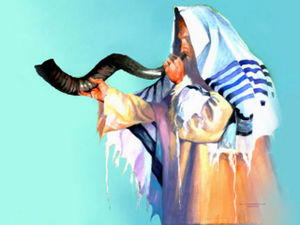 When we are asked by leaders in our congregations to do something or to believe something in regards to Scripture, we should always be like the Bereans and test everything against Scripture itself (Acts 17:11)... the whole of Scripture (2 Timothy 3:16-17). If a person feels "led by the spirit" to speak, behave, or believe a certain way, they should test that spirit (1 John 4:1) and see whether what that spirit is telling them to do is in agreement or disagreement with Scripture.
When we are asked by leaders in our congregations to do something or to believe something in regards to Scripture, we should always be like the Bereans and test everything against Scripture itself (Acts 17:11)... the whole of Scripture (2 Timothy 3:16-17). If a person feels "led by the spirit" to speak, behave, or believe a certain way, they should test that spirit (1 John 4:1) and see whether what that spirit is telling them to do is in agreement or disagreement with Scripture.
Let us take a journey together through Scripture and see what it says about the Messiah as He is pictured in the moedim.... a "walk in the Word" so to speak. As we take this walk, may we say, believe, and do what is right, be merciful in our speech and actions, and walk humbly with the Lord (Micah 6:8).
Scriptural quotations are from the New American Standard Bible unless otherwise noted. Bolded text or other emphases in the Scriptural references are the author's.
We also recommend the general article about the Scriptural holy days (the moedim).
Shabbat
Shabbat (the weekly Sabbath) is first referenced in Genesis 2:
Genesis 2:3
Then G-d blessed the seventh day and sanctified it, because in it He rested from all His work which G-d had created and made.
It is given as a commandment in Exodus 16:23 prior to the giving of the Torah at Mt. Sinai.
Messiah is pictured here in at least three ways:
- He is the Word and the Creator that ceased on the seventh day (John 1:1-3)
- He is Lord of the Shabbat (Matthew 12:8)
- In Him we find our Shabbat rest (Hebrews 4:9)
We cease from trying to merit salvation on our own terms and rest in the promise that He has purchased us for G-d with His own blood (Revelation 5:9).
Rosh Chodesh
Rosh chodesh (the new moon festival at the beginning of every Scriptural month) is a picture of renewal. This moed is first referenced in Numbers 10:
Numbers 10:10
Also in the day of your gladness and in your appointed feasts, and on the first days of your months, you shall blow the trumpets over your burnt offerings, and over the sacrifices of your peace offerings; and they shall be as a reminder of you before your G-d. I am the LORD your G-d.
The moon starts as a small sliver of light, waxes full, and then wanes to nothing only to begin anew. So, also, we see Isra'el born from the children of Avraham, waxing full over 14 generations to King David, waning 14 generations to the deportation to Babylon, and waxing once again to fullness in Messiah (Matthew 1:17). The renewal we see is not the full moon pictured by the 14 generates from the "new moon" to the Messiah but in the new beginnings He purchased for us. We who once dwelt in darkness and were "strangers to the covenants of promise, having no hope and without G-d in the world" (Ephesians 2:12)... we now have a new beginning in Him. We are "new creatures"... the old things have passed away and new things have come (2 Corinthians 5:17).
Aside from the weekly Shabbat and the monthly new moon moedim, the rest of the moedim given in Scripture can be grouped into those that occur in the spring-time and those that occur in the fall.
Let's examine the spring festivals next...